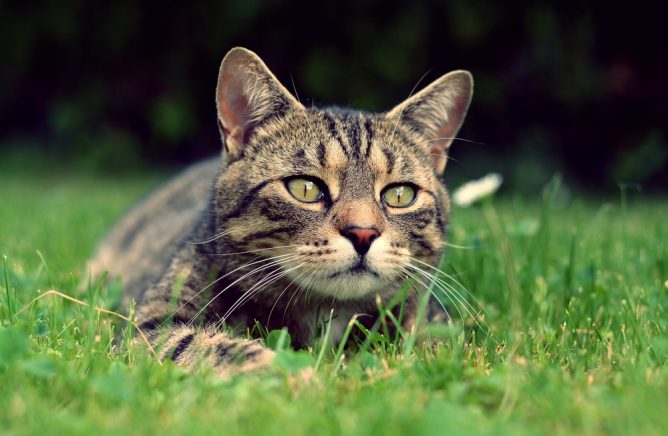Has your cat been disgorging food lately? Does it seem like your cat is a bit thinner than normal? If yes, your cat might be suffering from megaesophagus. It is a congenital condition in which your cats’ esophagus does not contract and minimizes the capacity to swallow the food. Megaesophagus is a condition that leads to the enlargement of the esophagus. As soon as your cat eats food or drinks water the enlargement will cause the food to stay in the pipe and your cat will begin to regurgitate food. As a result of which your cat will lose weight and also suffer from aspiration pneumonia.
Here we will talk about the effects of megaesophagus its causes and how can you protect your cat from it. Let’s begin.
What are the causes of megaesophagus?
Megaesophagus in cats is either acquired or inborn (congenital). Interestingly, the causes of congenital megaesophagus are unknown. There is very little proof about how cats develop this medical condition. Substantially, because more studies are required. However, the genetic development of this condition causes the nerve system to function inadequately. Siamese cats develops the condition of megaesophagus easily sometimes because of inherent attributes. But the same is not true for other cat breeds.
In the case of acquired megaesophagus, the condition has been characterized into two categories: primary and secondary. In primary cases the cause is idiopathic or you can say the cause has still not been identified. For secondary cases, the megaesophagus is caused due to blocked esophagus, tumor in the esophagus, metal poisoning, neuromuscular disease, and infection. Usually, during a neuromuscular disease, the neurons will stop sending signals to different organs and hence it will lead to impairment. But in megaesophagus, the impairment would be seen only in the muscles that help contract and relax the esophagus.
What are the symptoms of megaesophagus?
Megaesophagus can happen to any cat and it can be difficult to recognize the symptoms in the initial stages. So, to recognize the symptoms here’s what you can do? First and foremost, watch your cat carefully while she is throwing up food. Because vomiting is different from regurgitation. Vomiting means that content is actively pushed out of your system whereas, during regurgitation, food items will throw out of your mouth and throat. Another symptom is weight loss. If your cat is losing weight drastically it is a possibility that your cat is suffering from megaesophagus.
You can also look for symptoms like aspiration pneumonia. This medical condition occurs in cats because the undigested food travels to the lungs instead of the stomach. Eventually, it causes cough, weakness, lethargy, blue-tinted skin, nasal discharge, and difficulty in breathing. Now, if your cat has any of the above-mentioned symptoms immediately take your cat to the vet.
How to treat megaesophagus in cats?
To treat megaesophagus in cats the veterinarian will first run a few tests. In other words, the vet will carry out a physical examination and perform tests like ultrasound and X-rays. Both the tests will reveal whether or not your cat has an enlarged esophagus and other abnormalities associated with megaesophagus.
Unfortunately, there is no cure for this medical condition and in some cases, your vet might suggest surgery but at a cost of high risk. Also, it doesn’t matter if the condition is congenital or acquired. The treatment will not vary and it is largely supportive in nature because the goal of the treatment is to help the cat in swallowing and digestion.
In addition to this, a cat suffering from aspiration pneumonia will require immediate medical assistance. In this case, the vet will provide the cat with some antibiotics and might keep the cat under supervision until the symptoms deduce. Other treatment options include switching to a liquid diet because the liquids will easily pass through the esophagus. It is also vital to make sure that the cat digests the food. So, in such cases, you can place the food in an elevated position. This way the cat will eat food standing on the hind leg and gravity will push it in the downward direction. But in some cases, it is quite possible that you might have to serve food with the help of tubes.
In the most severe cases, you vet will ask you to give prescribed medications such as Metoclopramide. This medicine will help improve digestion by fastening the gastrointestinal movement Anti-nausea and antacid medications can also be suggested by your vet to prevent the cat from throwing up food. So, make sure that you take each and every advice given by the vet seriously and follow the treatment method given by him/her.
Bottom Line
The prognosis may vary but the effects of this condition will also differ on a large basis. So, you have to make sure that you take your cat to a good veterinarian. There is a wide range of vets out there and if you have your personal vet then don’t forget to take the previous medical records with you. Be it an emotional support animal or your favorite cat breed, you have to take extra precautions while dealing with this megaesophagus. The chances are that your cat will overcome all the symptoms easily but it is more likely that most cats will take a bit longer to recover completely. But taking extra care of the cat will help you overcome this hurdle.
Has your cat ever suffered from megaesophagus? If yes, don’t forget to share your journey with us in the comment section below.

Leave a Reply